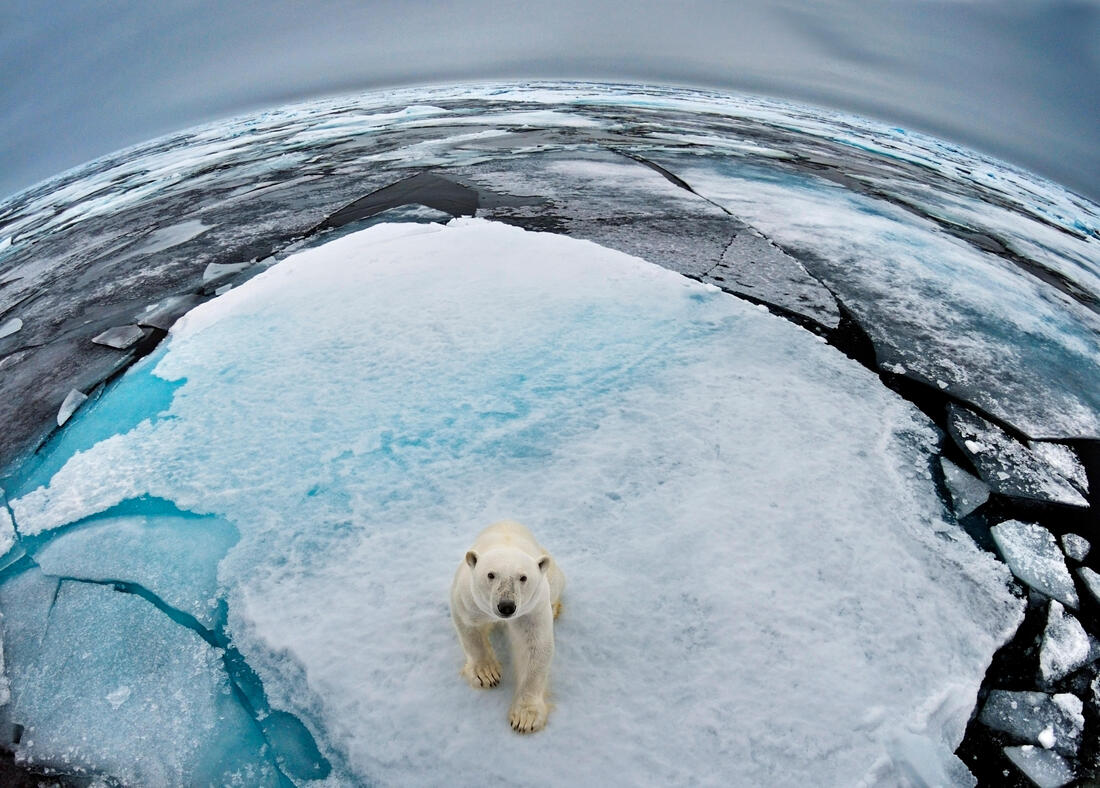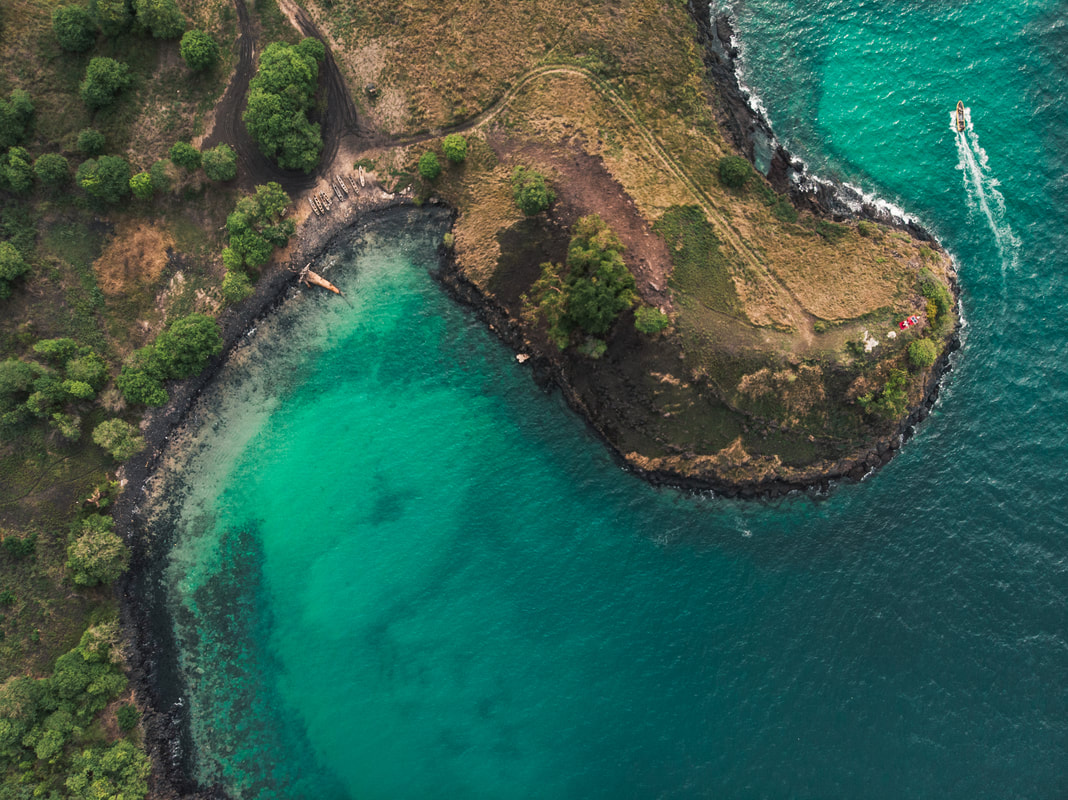RESEARCH
Research in the OceanPlanning Lab aims to contribute to improving the collective understanding of solutions and pathways towards ocean sustainability. In particular, we focus on how spatial planning and management of marine areas, from coastal to open-ocean regions, can support equitable and sustainable ocean use and conservation. We take an interdisciplinary approach, integrating natural and social sciences, to address our research questions. Also, our projects feature strong partnerships with local communities and stakeholders to ensure the co-development of knowledge and potentiate long-term solutions. Our research is currently aligned with three main research topics: the marine spatial planning (MSP) — climate change nexus; the development of MSP in polar regions (Arctic and Antarctica); and the importance of marine biodiversity for human wellbeing in small island (large ocean) states.
Marine Spatial Planning under a Changing ClimateThe acceleration of global warming and increased vulnerability of marine social-ecological systems affect the benefits provided by the ocean. Spatial planning of marine areas is vital to balance multiple human demands and ensure a healthy ocean, while supporting global ocean goals. To thrive in a changing ocean though, marine spatial planning (MSP) must effectively integrate climate change. Project OCEANPLAN (2018-2022, funded by the Portuguese Foundation for Science and Technology) explored the interlinks among MSP, climate change and ocean sustainability, highlighting management challenges, and identifying potential pathways to guide action towards the effective integration of climate impacts in MSP. While OCEANPLAN has formally ended, the investigation of solutions towards the development of climate-smart MSP is still a priority research area within the OceanPlanning Lab. Identifying codes of conduct, and taking research to the case study's level are some of our next steps. Also, a number of key deliverables from OCEANPLAN (e.g., scientific papers, policy briefs) are still under preparation!
Relevant publications:
Frazão Santos C*, Agardy T, Andrade F, Calado H, Crowder LB, Ehler CN, García-Morales S*, Gissi E, Halpern BS, Orbach MK, Pörtner H-O & Rosa R. Integrating climate change in ocean planning. Nature Sustainability 3: 505-516 (2020). doi.org/10.1038/s41893-020-0513-x Frazão Santos C*, Agardy T, Andrade F, Barange M, Crowder LB, Ehler CN, Orbach M & Rosa R. Ocean planning in a changing climate. Nature Geoscience 9: 730 (2016). doi.org/10.1038/ngeo2821 Website: www.oceanplan-project.com |
Ocean Planning in Polar RegionsThe Antarctic and the Southern Ocean are changing rapidly, with potential repercussions around the planet, particularly for sea-level rise, ocean circulation, climate regulation, and marine ecosystem structure and functioning. Antarctic marine ecosystems are also being increasingly affected by human activities and pressures (e.g., tourism, fisheries), and while approaches such as marine protected areas have been pointed to ensure their protection and conservation broader integrated planning approaches are needed to effectively support ocean sustainability. Similarly, the Arctic Ocean is undergoing unprecedented change, with Arctic social-ecological systems being subject to a wide range of human-related pressures, including climate change, pollution, and the increased expansion of uses and activities (e.g., shipping, commercial fishing, oil and gas exploration, tourism). The need to adapt to these challenges has led to the recognition of the fundamental role of marine spatial planning initiatives in the region. Project MSPOLAR (2023-2024, an Exploratory Project funded by the Portuguese Foundation for Science and Technology) will address these challenges, aiming to unravel (1) the enabling and hindering factors of developing sustainable, equitable, and climate-resilient MSP initiatives in both the Arctic and Antarctica, and (2) the common and diverging challenges of implementing MSP initiatives in Polar regions.
|
Importance of Marine Biodiversity to Human Well-Being in Cabo Verde and Sao Tome and PríncipeSmall island nations in tropical regions, such as Cabo Verde and Sao Tome and Principe, usually show high dependence on marine ecosystems for food and income, and changes in the availability of natural resources elicit cascading impacts in the well-being of local human populations. Project NGANDU (2022-2025, funded by the Portuguese Foundation for Science and Technology and the Aga Khan Development Network) investigates, within a comprehensive and integrated approach, how shark populations are being affected by human pressures in these archipelagic countries, together with their importance as key-stone species for human communities well-being and subsistence. Sharks (or “Ngandu”, in creole from Sao Tome and Principe) occupy high trophic levels in marine habitats and play a key role in the structure, function and health of marine ecosystems. Although sharks have evolved to fill many ecological niches across a wide range of habitats, they are assumed to have limited capability to rapidly adapt to human-induced changes in their environments due to their slow rates of evolution and low phenotypic plasticity. Sharks are indeed one of the most threatened groups of marine animals worldwide.
Relevant publications:
Rosa R, Nunes E, Pissarra V*, Pereira Santos C*, Varela J, Baptista M, Castro J, Paula JR, Repolho T, Marques TA, Freitas R & Frazão Santos C*. Evidence for the first multi-species shark nursery area in Atlantic Africa (Boa Vista Island, Cabo Verde). Frontiers in Marine Science 10: 1077748 (2023). doi.org/10.3389/fmars.2023.1077748 Website: www.nganduproject.com |


